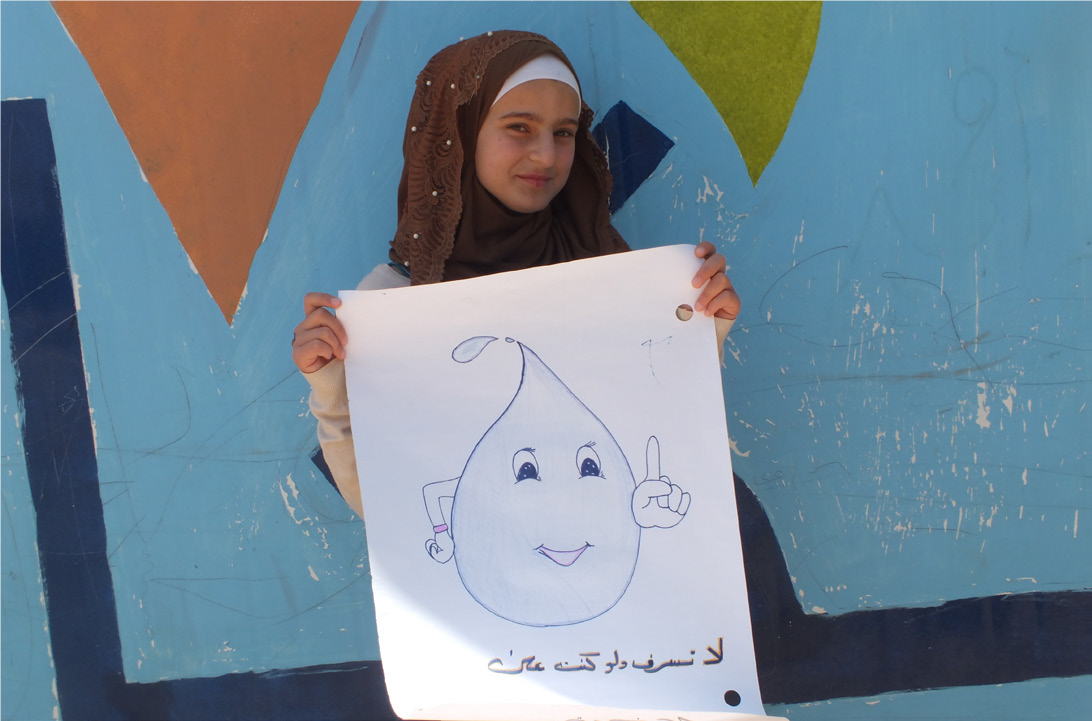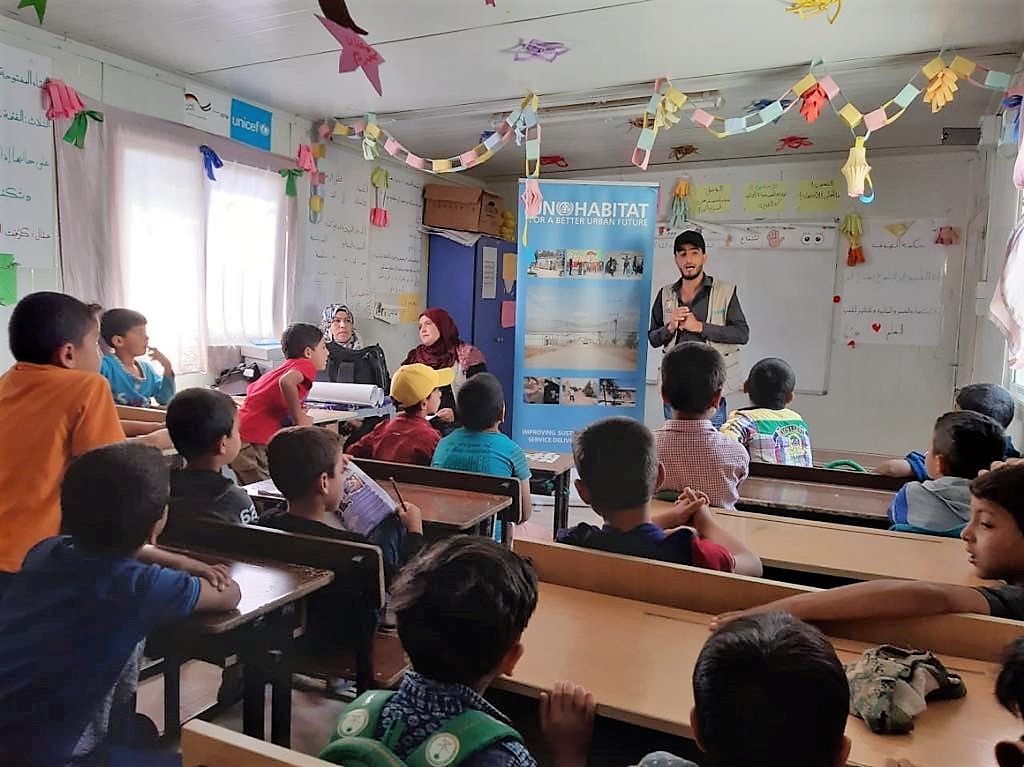Azraq Refugee Camp, Jordan, 1 August 2019 – Wardeh is a 16-year-old Syrian girl from Halab in Aleppo, Syria. Today she lives in one of the four planned settlement villages inside the Azraq Refugee Camp in Jordan. It is home to some 36,000 Syrian refugees.
She vividly remembers the day she first arrived in Jordan with her family. Her grandmother had already left Syria to live in Azraq Camp in Jordan. Subsequently the rest of her family left their homes in search of safety. “We moved continually from one place to another until my parents finally decided they had no choice but to leave the country.” The family moved from Halab (Aleppo), to Al Sham, to Naseeb, then to Dara’a, before finally settling in Jordan. When she first stepped foot across the border, Wardeh was amazed by the hospitality they received, explaining, “They organized blankets for us, because we came with nothing on our backs.”

After some time they moved to Azraq Refugee Camp so that her grandmother could cook and care for her and her siblings. It was during this time when she met Yasmeen and Shayma’a, who became Wardeh’s best friends. They encouraged her to attend Action Against Hunger’s water, sanitation, and hygiene (WASH) awareness session at the Makani Centre. “I said to myself, why not go and try? I went and I enjoyed it a lot.”
The WASH awareness sessions are part of Action Against Hunger’s ongoing WASH programming in Azraq Refugee Camp, supported by UN-Habitat and UNICEF. They are held in the Makani Centre, a child-friendly safe space in the camp. The programme focuses on building the capacities of youth to contribute to the WASH services and adapt and practice key personal hygiene behaviours.
In the WASH sessions Wardeh and her peers learned about the different water sources, water conservation, and disease prevention, particularly measles. Wardeh noted with surprise, “We never knew that if someone had measles that we could contract it, and that we would be affected such as that person.”
When asked the most important thing she learned from these sessions, she said, “Now that I have learned how to preserve water, I can teach the next person about how not to waste water and other tips I learned.”
In the future, Wardeh hopes to become a teacher to educate and spread awareness to others she meets. “I always tell my friends and family that I want to make people aware of different topics, like conserving water, preventing diseases, or how not to waste or throw away bread. This way I can benefit others.”
UN-Habitat is the executing agency for this WASH project titled “Improving Sustainability of WASH Service Delivery in Za’atari and Azraq Syrian Refugee Camps in Jordan”. The project is implemented in two camps in Jordan – Za’atari and Azraq. The project activities in the Azraq Camp are implemented by UN-Habitat in collaboration with Action Against Hunger. The project is supported under the New World Program, a partnership between The Coca-Cola Foundation and Global Water Challenge that encourages participation of civil society organizations to create innovative, inclusive, and sustainable solutions for the UN Sustainable Development Goals.

This article is an abridged version of a piece written by: Zein Al Maha Oweis, Action Against Hunger Jordan Mission.
Banner photo: Zein Al Maha Oweis, Action Against Hunger Jordan